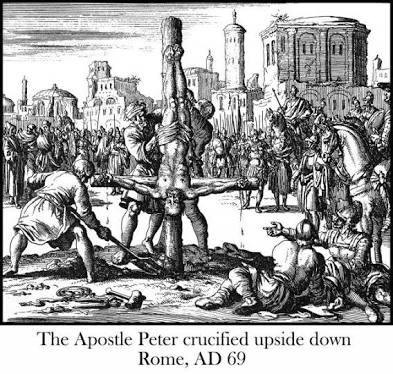Photinus (Greek Φωτεινός; died 376),[1] was a Christian heresiarch and bishop of Sirmium in Pannonia Secunda (today the town Sremska Mitrovica in Serbia), best known for denying the incarnation of Christ. His name became synonymous in later literature for someone asserting that Christ was not God. His teachings are mentioned by various ancient authors, like Ambrosiaster (Pseudo- Ambrose), saint Hilary of Poitiers, Socrates Scholasticus, Sozomen, saint Ambrose of Milan, Augustine of Hippo, John Cassian, Sulpicius Severus, Jerome (Eusebius Sophronius Hyeronymus), Vigilius of Thapsus (Vigillius Tapsensis) and many others.
None of his writings are extant and must be reconstructed through his critics
At the time Photinus voiced his own theological system, according to which Jesus was not divine and the Logos did not exist before the conception of Jesus. For Photinus the Logos was simply a mode of manifestation of the Father, hence he denied the pre-existence of Christ and saw theophanies in the Old Testament as of the father, and the image of the "Son of God" (actually, Son of man) in front of (and distinct from) the Ancient of Days as prediction only. As a matter of fact, Photinus' apprehension of God as Father, and his teachings about the nature of Jesus Christ are maybe more complex than has been thought.
The church historian Socrates Scholasticus identifies Photinus' beliefs with those of Sabellius, Paul of Samosata.[ This also was presumably misapprehension of Photinus' doctrine about Jesus.Ambrose, among the many accusing Photinus of reducing Christ to a man adopted by God, notes that his favourite verses were 1 Timothy 2:5 and John 8:40. In the controversies against Polish Socinian influence in 18th-Century Photinus was repeatedly cast as a heretical predecessor of early Unitarians for his denial of the pre-existence of Christ.
He makes the Father and the Word one Person (prosopon). The Word is equally with the Father unbegotten, or is called a part of the Father, eternally in Him as our logos is in us. The latent Word (endiathetos) becomes the explicit Word (prophorikos) not, apparently, at the creation, but at the Incarnation, for only then is He really Son. The Divine Substance can be dilated and contracted (so St. Hilary translates platynesthai and systellesthai, while Mercator's version of Nestorius's fourth sermon gives "extended and collected"). This is exactly the wording of Sabellius, who said that God platynetai, is broadened out, into Son and Spirit. To Photinus the expansion forms the Son, who is not, until the human birth of Christ. Hence before the Incarnation there is no Son, and God is Father and Word, Logopator. The Incarnation seems to have been conceived after a Nestorian fashion, for Photinus declared the Son of Mary to be mere man, and this is the best-known point in his teaching. He was consequently classed with Paul of Samosata; Jerome even calls him an Ebionite, probably because, like Mercator, he believed him to have denied the Virgin birth. But this is perhaps an error. He certainly said that the Holy Ghost descended upon Christ and that He was conceived by the Holy Ghost. By His union with the prophoric Word, Christ was the Son. The Holy Ghost is identified like the Word with the Unbegotten; He is a part of the Father and the Word, as the Word is a part of the Father. It is evident that Photinus went so far beyond Marcellus that it is unfair to call him his follower.
He makes the Father and the Word one Person (prosopon). The Word is equally with the Father unbegotten, or is called a part of the Father, eternally in Him as our logos is in us. The latent Word (endiathetos) becomes the explicit Word (prophorikos) not, apparently, at the creation, but at the Incarnation, for only then is He really Son. The Divine Substance can be dilated and contracted (so St. Hilary translates platynesthai and systellesthai, while Mercator's version of Nestorius's fourth sermon gives "extended and collected"). This is exactly the wording of Sabellius, who said that God platynetai, is broadened out, into Son and Spirit. To Photinus the expansion forms the Son, who is not, until the human birth of Christ. Hence before the Incarnation there is no Son, and God is Father and Word, Logopator. The Incarnation seems to have been conceived after a Nestorian fashion, for Photinus declared the Son of Mary to be mere man, and this is the best-known point in his teaching. He was consequently classed with Paul of Samosata; Jerome even calls him an Ebionite, probably because, like Mercator, he believed him to have denied the Virgin birth. But this is perhaps an error. He certainly said that the Holy Ghost descended upon Christ and that He was conceived by the Holy Ghost. By His union with the prophoric Word, Christ was the Son. The Holy Ghost is identified like the Word with the Unbegotten; He is a part of the Father and the Word, as the Word is a part of the Father. It is evident that Photinus went so far beyond Marcellus that it is unfair to call him his follower.

